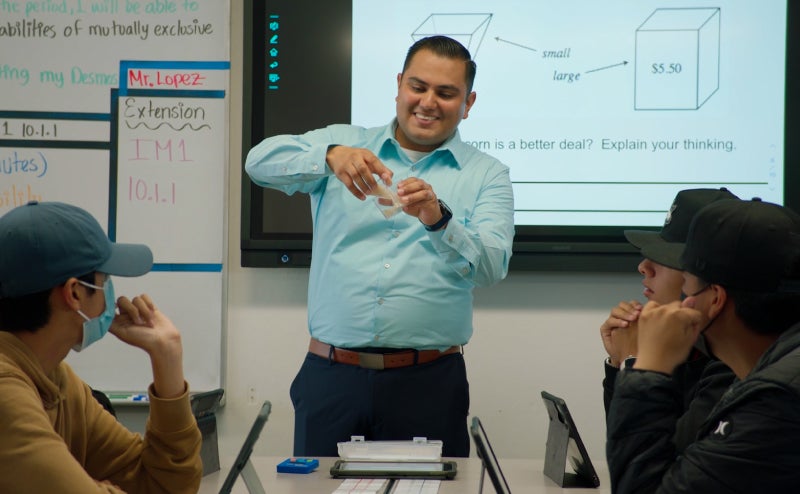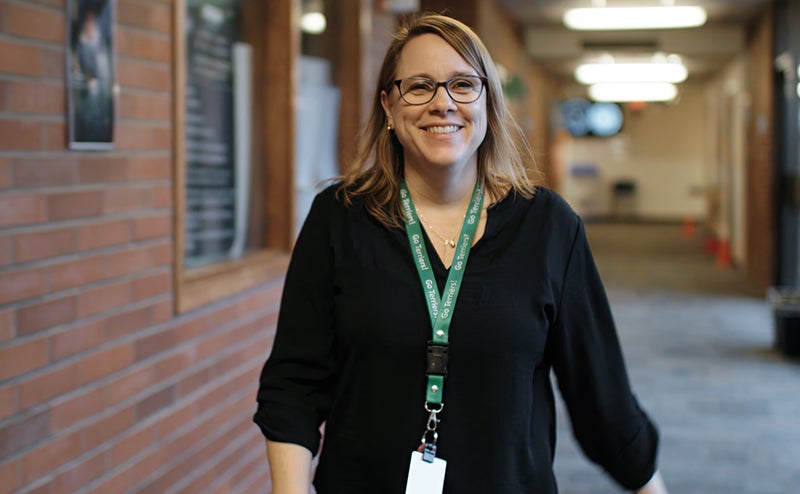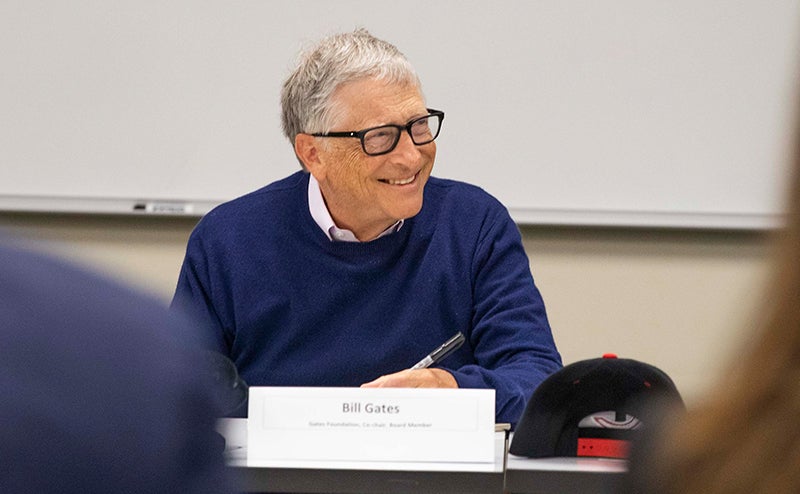In India’s poorest rural families, goat rearing is an important source of income.
There’s one set of questions on the mind of everyone in the education world right now: What should schools do in the fall? Should they let students come to class in person? If they do, can they ensure that teachers, staff, and students will be safe from COVID-19?
Of course these questions deserve to be discussed at length, and they are. But there’s another crucial issue that we can’t afford to overlook: What does the future look like for the high school classes of 2020 and beyond? As much as we’re rightly focused on what happens this fall, we also need to look ahead to next spring and beyond. If we don’t, COVID-19 could—on top of the horrific toll it has already taken—permanently derail the dreams of hundreds of thousands of young people.
As I have written before, by 2025 two thirds of all jobs in the United States will require some education beyond 12th grade. That can involve a wide range of credentials—including a certificate from professional training, an associate’s degree from a two-year college, or a bachelor’s degree from a four-year university—but for simplicity’s sake, I will call it graduating from college.
Our foundation has been working for years to help more students finish college. Through that work, we’ve learned it’s impossible to raise college graduation numbers unless more young people make it to college to begin with—and that requires helping them navigate the difficult transition from high school to postsecondary work. If you don’t start college within two years of getting your diploma, the statistics show that it gets harder and harder to come back for your degree as an adult.
Unfortunately, 30 percent of white students and 35 to 40 percent of Black and Latinx students don’t enroll in college within two years of finishing high school—and these numbers are poised to skyrocket with the impact of COVID-19.
There are many reasons why students don’t start college. Some aren’t academically prepared, a situation made worse now by the fact that Black and Latinx high school students from low-income homes are significantly less likely than their white peers to be taking classes online while schools are closed.
Another reason is that many students don’t get the counseling and advising they need in high school to understand their college options, write strong applications, and figure out how to maximize their financial aid. This is an even bigger problem now, since closing schools has also meant closing counseling offices.
Applying for college is especially difficult for students who are the first in their family to go. It’s hard enough to pick schools that match your interests, aspirations, and abilities, navigate the admissions process, apply for financial aid, and make sure you enroll in the right classes, all while possibly holding a job as well. It’s even harder if you don’t know anyone who has done it before. And the stakes are high, when making just one wrong decision can throw you off the degree path forever.
In short, because of long-standing barriers that are made worse by COVID-19, hundreds of thousands of students with promise—most of them Black, Latinx, or from low-income households—may never start college. This would be disastrous for these young people and for the country.
"Our foundation is expanding our partnerships with three organizations that work to give students the support they need to get, and stay, on a path to a college degree."
So our foundation is expanding our partnerships with three organizations that work to give students the support they need to get, and stay, on a path to a college degree.
College Advising Corps places college graduates into high schools where they serve as full-time college advisors, helping students find schools, apply, and get ready to attend. CAC currently works in 782 high schools across the country, with impressive results. In 2018, the students they met with were 18 percent more likely to apply to a college or university and 19 percent more likely to get in. Since the pandemic started, College Advising Corps and its partners have identified more than 170,000 students who were partway through applying for college and financial aid, and with support from our foundation, they’ve enabled advisors to connect with these students virtually to help them finish the process.
Another grantee, City Year, places what they call “student success coaches” into high schools to provide role models, offer encouragement, and help students make decisions that keep them on track for college. By developing strong personal relationships with students and working on both academic and social and emotional skills, they help make sure each student feels connected to school. They also watch for early warning indicators that can predict when a student might be disconnecting from school and, if necessary, they’ll step in with one-on one support and small group meetings.
Finally, Saga Education embeds math tutors in high schools, where they work with students who need help with algebra, and also gives the students access to an online learning platform. The goal is to help them pass algebra and move to higher levels of math, and the results speak for themselves: Saga students pick up an extra 2.5 years’ worth of math in one academic year and are 60 percent less likely to fail a math class. The impact even ripples out to other courses; students who work with Saga’s tutors are also significantly less likely to fail classes in other subjects. Our foundation recently funded 28 Saga tutors for six high schools in New York City; they’ll work with 2,000 9th graders over the next two years.
"These groups use a 'near peer' approach so that students can see themselves in their coaches and tutors."
Even though they work on different aspects of the problem, CAC, City Year, and Saga have a lot in common. They work with the AmeriCorps national service program to find talented young adults to serve in these roles. That approach not only lets them keep their costs low; it also allows them to use a “near peer” approach employing recent college graduates, so that students can see themselves in their coaches and tutors. And they’re using digital platforms to reach students whose schools have shut down, and to make their work more effective.
Our foundation has committed more than $23 million to these three organizations. But additional funding from other groups would allow them to expand even more. College Advising Corps aims to reach an additional 300,000 students and help 69,000 more students get into college. City Year could triple the number of coaches serving students in school districts with especially high dropout rates. And Saga could double the number of students who get tutoring help, ultimately connecting with 10,000 to 15,000 young people.
All young people should get the advising, tutoring, and coaching they need to get on the college pathway that’s right for them. And because of COVID-19, this work is especially urgent for the next few classes of graduating seniors. As the country focuses on the needs of these young people, supporting College Advising Corps, City Year, and Saga would be a great start.
If you’re a recent college graduate, I hope you’ll consider serving with one of these organizations. They’re always in need of talented people to inspire young students.
It’s impossible to list all the ways that COVID-19 has upended America’s education system. And tutoring, mentoring, and advising aren’t silver bullets that will solve every problem. But they will be an essential part of keeping young people on the track to a brighter future.





